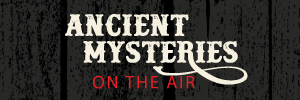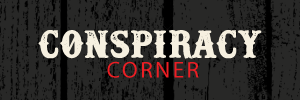Mar 25, 2022
Katherine Chiljan joins us to talk about the question of the REAL Shakespeare. You can find the 2nd edition of her book on the subject at Amazon: Shakespeare Suppressed: the Uncensored Truth about Shakespeare and his Works - 2nd edition
We're joined by the host of Unpleasant Dreams, Cassandra Harold. Cassandra recently graduated with a major in English and a minor in drama so we wanted to bring in her perspective.
Thanks Katherine!
Jim Harold 0:05
Where we came from, where we've been. They're eternal questions
that say a lot about where we're going as the human race. Welcome
to Ancient Mysteries on the Air. Welcome to Ancient Mysteries on
the Air. So glad to be with you once again. Now plus club members,
if you go back in the archives of The Corner archive, you can find
an interview we did quite a few years ago, eight years ago with
Katherine Chiljan. And it was a fascinating discussion. We talked
about Shakespeare, was Shakespeare, really Shakespeare, or was he
somebody else? It's the Shakespeare authorship question. And there
have been some new developments in that field. So we thought we
would have Katherine back on to talk about the real identity of
Shakespeare. And we have another wrinkle today. Actually joining
me, many of you may be familiar with the Unpleasant Dreams podcast
that we've been doing on the free side. And that is certainly
something that has gotten a lot of traction. And I really enjoy
working with their host, young lady who happens to also be my
daughter, Cassandra Harold. Hey, Cassandra, how you doing?
Cassandra Harold 1:17
Doing wonderful. How are you?
Jim Harold 1:19
Doing well, and I like to have you here. But the thing is, is that
I just didn't do this for any reason. Specifically, Cassandra was a
triple major and one of her majors graduating from college, just
this last summer was English and with a very keen interest in
Shakespeare, and I thought she would be a great co host for this
episode. So welcome aboard, and I hope you come up with some better
questions than I did last time. So glad to have you here. So
Katherine Chiljan, is our guest once again, and we're so glad to
have her with us once again. She was so great. We just really
listened to that first episode. Before we started this, and it was
so great. Katherine has a BA of history at UCLA. She's an
independent scholar, who has studied the Shakespeare authorship
questions since 1985. She debated the subject with English
professors at the Smithsonian Institution. She has won an award for
her book, Shakespeare Suppressed, which is now I believe in its
second edition. And that was for Distinguished Scholarship at
Concordia University back in 2012. And she continues to work on
this and there's some more recent developments we're going to talk
about Katherine, welcome back to the program. Thank you for joining
us.
Katherine Chiljan 2:43
Oh, my pleasure. It's an honor to be on again.
Jim Harold 2:46
Now, I think the thing that makes sense and with Cassandra's
permission will go in this direction is again that that interview
was eight years ago, so many people may have heard it, and it's
been a little while, or they may not have heard it. Now, the
question is here, you know, in our history books, and in what we
learn, I mean, it's pretty cut and dried. Shakespeare is
Shakespeare, it's like Abraham Lincoln is Abraham Lincoln. But all
of a sudden, you know, you become aware that there is actually a
real question about who Shakespeare really was. Can you talk to us
about that a little bit? And tell us a little bit about this
question of the actual authorship and who Shakespeare really
was?
Katherine Chiljan 3:30
Right? It's a fascinating question. It's been going on since the
mid 19th century. And the reason why is because the traditional
attribution to the man who was born in Stratford upon Avon in 1564,
and died in 1616. There is no lifetime evidence that he was
educated or a writer. That's problematic when you have the
education and the life, a literary life of many other authors of
the period less than one no one's that you've never heard of. We
don't have any evidence of schooling. We don't have any manuscripts
in Shakespeare's handwriting. We don't have any authentic images.
We don't have any payments to him as an actor, or a writer. We
don't have any, like encounters with his contemporaries. Nobody
seemed to have known him during his lifetime. And, most strangely
of all, when the Stratford man died in 1616, no one said a word.
And yet the Shakespeare works were extremely popular. And he,
Shakespeare was praised by his contemporaries. So what is this
disconnect? Why does it only apply to Shakespeare,who was the most
proficient, and prolific, and educated writer of them all. There
should be some paper trails here. And it doesn't exist. The only
evidence that we do have pointing to the Stratford man is a book
that was published in 1623. And it's called Mr. William
Shakespeare's Comedies, Histories, and Tragedies. And in this book
is 36 Shakespeare plays, 20 of which had never been in print
before. So this was probably one of the greatest events in
literature, was the publication of this book. So people for the
first time would be able to read or learn about Anthony and
Cleopatra, and as you like it, and a few other place that had never
seen print before. So the opening pages were extremely important,
you know, the preface pages, and you have tributes, to the great
author, and some letters written to the people who probably
sponsored the publication. So it's the 16 pages, where we can find
if you want to call it eminence, or hints that the great author
came from Stratford upon Avon, but that phrase Stratford on Avon is
nowhere in those opening pages. So keep in mind that this book
really started it. And there is a phrase in on one of the pages
referring to the great author, referring to his Stratford monument.
And in fact, in the town of Stratford on Avon, there is a monument
to a Shakspere. And we can get into that later, but mostly it is,
after the Stratford man died, that evidence pointed to him, but
nothing, nothing, nothing during his lifetime.
Jim Harold 7:01
Why would something like this be suppressed? I mean, you would
think that folks would want the right person credited. Why would
there be a deception? I mean, a lot of times if it's a crime,
you're looking for a motive, what would the motive be?
Katherine Chiljan 7:17
Yes, well, it was a hoax. And the motive, there's various theories.
But in my research, what I'm coming up with is that well, the plays
were greatly autobiographical. And the Shakespeare sonnets were
greatly autobiographical. And he was somebody of high rank. And he
knew, of course, many courtiers, and he knew the queen of the time
Queen Elizabeth the first. So it appears that these plates were
really initially written for the queen and her courtiers, and that
they only much later came on the public stage. Of course, the Queen
never went to a theater; she only had private plays produced at her
palaces, basically. So one can read the plays with a point of view
of a nobleman. Then you'll see portrayals of the Queen, you'll see
portrayals of, in some cases, mocking portrayals of some of the
courtiers.. Here's one great example would be in Hamlet there is
the counselor. The King's counselor.
Cassandra Harold 8:37
Polonius, right?
Katherine Chiljan 8:38
Polonius, there you go. Yes, well, in the first edition of the
first quarto of Hamlet when it came out in 1603. The character's
name was Corambis. And that was a pun on Lord Burghley: his name,
William Cecil; title, Lord Burghley. It was a pun on his family
motto, which was one heart one way, and I believe Corambis means,
like two hearts. Being a duplicitous person, in essence, so many,
many historians have come to the conclusion that Corambis/Polonius
was actually a portrayal and not a flattering one of Lord Burghley
who was one of the highest, most powerful men in England. He was
really ruling on behalf of Queen Elizabeth many, many people
believe. In fact, they call it the Rule of Cecil, during
Elizabeth's timeframe. So and then also there seems to be a
portrayal of Richard the Third as Lord Burghley's son, Robert
Cecil. Both were hunchbacks or people who had curvature of the
spine. And he was very small, but very ambitious. So It seems
people of this period associated Richard the Third with Robert
Cecil. We have it in print. So you can see that we're seeing some
satire here, and very important people that they would have
preferred to keep covered up. How do you do that? Well, you try and
put the authorship on somebody else. And it just so happens, there
was a somebody else. Born with the name William Shakespeare
actually Shakspur that's the way it's written in documents of the
period when it relates to the Stratford man. And he was born with
this name, and he was involved in the theater, it was perfect, and
it worked. And so this hoax has been going on for 400 years. But
people like me and others since the 19th century, have delved into
the Stratford man and just are finding nothing, nothing. 200 years
of intense research, and they're not finding any literary
biography, they're not finding any evidence of education. You know,
from the very beginning, his parents they were illiterate. I mean,
he came from an illiterate household. And not only that, if he was
a great author, why were were his children illiterate. He had two
surviving daughters. So it just doesn't make sense.
Cassandra Harold 11:28
Yeah, no, I definitely had found that evidence surrounding Lord
Burghley extremely compelling. You know, when you consider access
to the courts, and access to that much higher lifestyle. One thing
however, I found a lot of times because well, I'm not sure I'm an
Oxfordian, and I definitely fall into that anti Stratfordian
category. At the very least, it's something that I would, you know,
frequently bring up to people and time and time again, they would
come back with this argument that it's merely the whole authorship
question is fueled by classism? That's, it's the idea that oh, you
think a tradesman couldn't be Shakespeare, you think a tradesman
couldn't write to those great works? And it's something that's
often kind of just used to shut down the conversation entirely. And
I was kind of wondering what your take on that would be?
Katherine Chiljan 12:19
Yeah. I mean, I can understand someone's point of view for that.
But when it applies to the Shakespeare works, it's kind of like it
doesn't qualify. It's not just a class thing. If you examine the
works, they're extremely learned, you know, Shakespeare invented
over 2000 words, some say maybe 3000 words for the English
language. And they were based on Latin and Greek roots, a lot of
these words. Some say that he had a vocabulary over over 30,000
unique words. And the the only person who comes close would be
Christopher Marlowe with a 7000 word vocabulary. They're extremely
learned. He knew about astronomy. He knew heraldry. He knew
aristocratic sports. He knew Europe. He knew the French language.
He knew Italian language. I mean, there, there's, you just take a
long list of everything he knew. And it can't be that he was just
somebody who had a grammar school education, which they're claiming
for the Stratford man. Unfortunately, we don't have the educational
records for the period when the Stratford man supposedly went to
grammar school. He may have gone to grammar school, but that
wouldn't have been enough. You weren't, you wouldn't learn French
and Italian at your local grammar school back then. So it's really
a you know, the knowledge that this man had, especially with
aristocratic things. It's coming from the man who knew the
aristocracy very well. And yet, if you say he was a servant of the
aristocracy, where are those records? You know, if he was supported
patronized by the aristocracy, where's the link? But we don't have
any lifetime links between anyone in the aristocracy. We have the,
the first time that the name William Shakespeare came into print
was on the dedication to the poem, Venus and Adonis, and that was
dedicated to the Earl of Southampton. Okay, fine. There's a woman.
Her last name is Stokes, who did a, a biography if he Earl of
Southampton with the idea of finding the connection between her and
the great author, and she couldn't do it. There is no connection
but if the name was a pen name, yes, it would make sense. And going
back to Venus and Adonis, the first time the name William
Shakespeare came into print. What about this book? Not only is it
dedicated to the most glittering, aristocratic and favorites of
Queen Elizabeth at the time, right? It had got into print through
the auspices of the Archbishop of Canterbury, which is a very, very
high position.
A commoner just couldn't say, hey, why don't you? Why don't you print this when printing was a was a thing? I mean, that was not accessible. You couldn't put it up on Kindle?
Cassandra Harold 15:45
Not getting an HP LaserJet.
Katherine Chiljan 15:47
Exactly. You know, and it had to be approved, that you just
couldn't you-- theoretically, you could print stuff, but there was
a regulatory agency called the stationers register. And you usually
had to register a work and often they would, censors would look at
it. But you know, that when you had the Archbishop of Canterbury
approving this, that really means it's someone special. And yet,
this was a very racy, somewhat racy, very erotic work and that's
why it was extremely popular, went through many, many editions. So,
and the Earl of Southampton, you know, he had no problem if he if
he were the, if the great author was the Stratford man. And he
evidently didn't even know him, why would he allow that dedication
to remain on it to him? So there's a lot of implications here.
Jim Harold 16:47
No, very, very good. Very good points all around now. Yes. There's
something we did not talk about before. And I know other
researchers have looked into it. What is the Chiljan Portrait? What
is that?
Katherine Chiljan 17:03
Oh, that's a portrait that I discovered in the 90s of the 17th Earl
of Oxford, I believe it is. I have various reasons why. And, by the
way, it is on the cover of our journal or scholarly journal called
the Oxfordian. And there's many great articles in it. But it's on
the cover of that, if anyone wants to get that, or see it, or you
can just pop in Earl of Oxford, you can Google it, and you can,
you'll see an image of it. And he's he's in his most incredible
outfit, kind of eccentric looking person. And many, many people
like it. What I discovered was that, beyond there being a
connection to the Earl of Oxford's granddaughter, I mean, you can
trace this picture to the granddaughter, besides that, so that's
the provenance, the hat that he wears is very interesting, because
in 1581, the Earl of Oxford was in the Tower of London, the queen
Queen Elizabeth discovered that he had an affair with one of her
ladies in waiting. And she had a child, she had a child in March of
that year. And well, when the Queen found out she was furious, and
she threw Oxford, the lady in waiting, her name was Anne Vavasourt.
A dark lady, by the way, if you want to talk about later, and the
child the baby in the tower, so after three months Oxford was
released, I don't know about the other two. But the month after the
Queen gave from her personal wardrobe, a hat of the same
description that the sitter of this portrait is wearing. And the
painting is dated circa 1580 by Christie's, so the timing fits
perfectly. The provenance works. The hat is really an amazing
thing. And I actually went and saw the document. You know, any time
that a piece of clothing came in and out of the Queen's wardrobe,
it was written down in a journal. And so it is a journal entry. And
it was a black hat with pearl and gold. I think decorations is what
they meant to me. So that's kind of exciting to actually own a
picture of who I believe see the true Shakespeare.
Cassandra Harold 19:46
Oh, that's really incredible. Now, I'm just going to play devil's
advocate for a moment kind of bring into the question that
timeline. I know people who look really closely always like to
point out that you know, de Vere died in 1604 and some of
Shakespeare's plays were coming out after that, I think
particularly they were like the Tempest is right, written sometime
probably in like 1610 or 1611. And they cite current events as the
time as a surfacing in some of those later plays. And I was
wondering how that kind of fits into Oxfordian theory and how you
kind of deal with that issue of the timeline.
Katherine Chiljan 20:22
Yeah, they've been you the ortho-- chicks for orthodoxy has used
that line of argument for a long time. And I think primarily just
to dispel the notion that he was the Earl of Oxford because Oxford
died in 1604. And they think that Tempest was written circa 1610.
But there's absolutely no evidence that it was written at that
time. In fact, any Shakespeare play, they have no evidence when
they were when they were written at all. You know, you they might
say that Hamlet was written in 1600. But really what they mean is,
circa 1600, they have no idea. In fact, that's one of the first
things I noted even before I knew about the authorship question,
that I read Hamlet, and I, they had a list of all the Shakespeare
plays, and okay, so say Hamlet, 1600 with a question mark, you
know, as you like, it 1600 with a question mark, you know, you name
it, they all had question marks after the date. And I thought that
was weird after, you know, after 400 years, or at least 200 years
of scholarship, right? They still don't know when these plays were
written. So that really, that really struck me and this is before I
knew anything about it. But anyway, going back to the Tempest, they
were many shipwrecks, they base that date on a shipwreck that it
had occurred in 1609. And soon after, someone wrote a letter about
a certain shipwreck, and in in Bermuda, but there were many other
previous shipwrecks that were notable. So it doesn't have to be
this one. But this one suits their, their aims, fathered the
orthodoxy's aims. Rodger Streitmatter and Lynne Kositsky, wrote a
work totally dispelling this argument. That, that this is one of
the details is that this letter that his base knew they use for
this dating, this letter was private, and it was not even known
publicly for at least a decade after. So it's kind of, it just
doesn't make sense that it was based on that. And actually, in my
research, I have found that Philip Sydney made a reference of to
the Tempest, in my opinion, in probably right around the early
1580s. And Philip Sydney was a poet of the time, he died in 1586.
So, in my article, which appears in the ox-- this latest edition of
the Oxfordian, volume 43, I, I give the citation that Sydney was
actually talking about the Tempest. That, you know, we're talking
what, three decades earlier than is believed it was written. And
there's many other illusions like that. And actually, in my book
shakes- the suppress, the appending, appendix gives 93 allusions to
early Shakespeare allusions that orthodoxy just won't accept.
Jim Harold 23:41
Now, you know, these days, if somebody does a work of art, or maybe
they write a computer program, they'll put in an Easter egg, a
little hint of who the author is, if it's a mystery or something
like that. Now, obviously, you can point to the use of language in
the knowing the inner workings of the upper class and royalty and
so forth to point to Edward de Vere, the 17th Earl of Oxford, but
were there things that you think de Vere put in, little hints that
hey, it's rally me? Was there anything like that?
Katherine Chiljan 24:19
Um, well, up the sonnets, it's certainly describe a you know, the,
the Shakespeare sonnets work, poems, you know, the 14 line poems
that were written in the first person, and of course, it and I
break this down and Shakespeare Suppressed it was certainly a
nobleman who was talking. Somebody with that experience. Hamlet
again, going back to Hamlet, is extremely by autobiographical of
the Earl of Oxford. The most salient point is that the Earl of
Oxford, you know, he took a grand tour of Europe when he was 25. He
was there for about a year and a half or so, when he returned back
from, you know, crossing the Channel, his ship was attacked by
pirates. And he, they stripped him down, you know, down to his
undershirt. They took everything and they were they were almost
going to kill him too. Well, what happened to Hamlet when he was
coming back home from England, you know, going to Denmark what
happened to him? Well, his ship was attacked by pirates, and he
nearly lost his life. Hamlet loved the counselor, we mentioned
before Corambis/Polonius, his daughter, well, the Earl of Oxford
married the daughter of Lord Burghley, and this daughter Anne Cecil
she died young and so did so did Ophelia who was the daughter of
Polonius. So those are just a couple there's there's many more than
I think it's really an autobiographical play. It just works, you
know, and that's the great thing the Orthodox scholars claim it
claim it's the most autobiographical and yet who is who is Hamlet?
I mean, he's a prince of the realm, you know, somebody's highly
ranked. He's somebody who went to university, somebody who you know
went abroad. I mean, all these apply to the Earl of Oxford. Even,
there's one sonnet let me see what sonet 76: why write I still all
one, ever the same. Ever was a play on his word de Vere. Okay, so,
Why write I still all one, ever the same/And keep invention in a
noted weed. A noted weed. A weed is like clothing. So noted is well
known. So like a well known pseudonym, is how I would interpret
that. And then he goes on that That every word doth almost tell my
name, Showing their birth, and where they did proceed? So every
word, de Vere word does almost tell my name..So yeah, he punned on
his name a lot.
Cassandra Harold 27:34
And I do think that question of class kind of comes back into it,
and it would make more sense for him to be a noble, because when
you see a lot of the low class characters in Shakespeare, they're
frequently not depicted very well. They're frequently comedic
characters, you have individuals like Bottom from A Midsummer
Night's Dream,
Jim Harold 27:52
Who you played, by the way.
Cassandra Harold 27:53
Which I did get to play, yeah, and Falstaff from Merry Wives of
Windsor. These are the common men and they're played off as jokes
most of the time.
Katherine Chiljan 28:00
That's right. And all the heroes are, you know, kings queens, or,
you know, nobles. Yeah, and, and who, during this period, who would
need a pen name the most? It would be a nobleman. You know,
somebody who had a great passion for writing, creative writing, who
was a nobleman, who would he would need a pen name, because back
then such activity was considered frivolous, even declasse.
Jim Harold 28:32
Yeah, it, was it, wasn't the theater considered kind of on par with
prostitution?
Cassandra Harold 28:36
Right next to the bear baiting?
Katherine Chiljan 28:38
Yes. The Public Theater. Yes. But the most important thing was the
Earl of Oxford, had one of the oldest names in England, the oldest
titles in England. His ancestors were noblemen at the time of
William the Conqueror. So we're talking, you know, the 11th
century. And it's a long line ever since. So, you know, talking
about he had 400 years of an illustrious family name. He didn't
want to ruin it, by people knowing that he was focusing most of his
activity on this, on writing, plays and poems. So he would be the
one who would need a pen name certainly. In fact, there was a
reference by a fellow writer during this period in 1578, referring
to Oxford in a public oration to well, Queen Elizabeth was present
the Earl of Oxford was present, many great courtiers were present.
And he referring to Oxford in particular, he said, Thy will shakes
spears. And now of course, it was written in Latin and you can
interpret the different ways but that is definitely many people our
movement, read it that way thy will shakes spears or thy
countenance shakes spears, but Shakespeare's right in there. That's
one reference. If you look at what contemporaries wrote about him,
they said that he was. Of course, these references are not open.
There's they're somewhat cryptic. But they said that he wrote
anonymously or with a pen name. Another one said that, letting it
be known that you're an author would stain in your name. He was a,
they referred to him as somebody of high rank, these were
contemporary authors. One of them referred to him as our English.
Terrence. Terrence was a classical name from classical times in
Roman, ancient Roman times, and he was a playwright. But it was
long believed, especially during Shakespeare's time that Terence
was really the front name for two aristocratic authors. So by
calling him our English Terrence, in a way, he was referring to
that saying that he was using a pen name. And this is collaborated
by the fact that about half the time that the name Shakespeare
appeared in print, it had a hyphen, between shake and spear. And
that was a common indication of a made up name.
Jim Harold 31:29
Oh, that's, that's really interesting.
Katherine Chiljan 31:33
And just a real fascinating coincidence is that the Earl of Oxford
was a champion at the joust. The instrument that he used, they
called it a long spear. So I mean, he was a spear shaker for
sure.
Cassandra Harold 31:51
Now, I know earlier, you had brought up the figure of the Dark
Lady, you know, the one who's kind of traipsing through the
sonnets. So I was wondering if you wanted to go a little bit more
in depth about who you think the fair lady is? Or for that matter
who the who the fine youth may be? Or fair youth may be.
Katherine Chiljan 32:07
Yes, yes. Yeah. The great author in several sonnets, explains talks
about his obsession, his deep love, and someone call it obsession
of the Dark Lady. And he describes her with dark hair and eyes. And
he also in one of the sonnets, implies that their love is not
treasonous, but adulterous, right? So it was somebody that he was
having an affair with, that he was married or she was married, or
they were both married. And I think it was sonnet 152. And the Earl
of Oxford, was obsessed with a dark lady. And her name was Anne
Vavasour. And she is the one that he he had child some say even,
that he she got pregnant and then lost the child and then got
pregnant again and had the child who who, you know, he lived to
adulthood, of course, and he called him Edward. So his he was named
Edward de Vere, he had no problem giving his name to this bastard
child. And of course, that was the cause of the Queen throwing him
into the tower. So it is reflective of Measure for Measure where a
man is thrown into prison for getting someone impregnated, even
though he intends to marry her. So you know that that's reflective
right there. And it's, it just goes on and on and on. And the fair
youth, I would say most people believe, was the Earl of
Southampton, Henry Rosalie, the third Earl of Southampton, and he
greatly greatly loves this, this man. He never mentions him by name
in the sonnets. But he deeply loved him and it's not in a sexual
way. It's really more in a fatherly way. You can read it that way.
But he, he considered him his angel even uses that. And then the
Dark Lady was kind of his devil. So yeah, about 75% of the sonnets
were about the fair youth. And he was definitely an, a, he
describes him as aristocratic, even regal in some cases, and it is
believed by some of us, including me, that this was actually the
Earl of Oxford Street. And there is some reference post possibility
that it was his child by Queen Elizabeth. But, you know, that's
speculative. Of course, you can't prove it, you know, these
people's sex lives were. But the more you get into the role of
Oxford's life and you know, then you can read the sonnets. And
really, it fills in a lot of the blanks.
Jim Harold 35:26
Now, when we spoke in 2014, you had mentioned that you felt that
that this kind of line of thought had been progressing. Internet
was a big part of it, as the Internet has become more and more
popular, and even more so since 2014. Believe it or not, where do
you think we are in terms of turning around the narrative? And
where do you think we're going? Do you think, eventually, the
conventional wisdom will be turned on its head?
Katherine Chiljan 35:57
You know, I honestly, I can't I don't know. But yes, the internet
is definitely helping. I think we're getting some more people
interested in doing research. Keep in mind that like card carrying
Oxfordians, there's not a lot of us. And even a smaller amount
people doing research, but I think that the internet is making
people question and kind of delve on their own. I think that, you
know, it's hard to judge how how, how much we've penetrated. That's
the reason why I do podcasts like yours, because I want to get the
word out. Sure. You know, you know, the great author was a victim
of a hoax. And you know, we need to tell the world about it. So
they, those who love and admire the works, can understand him
better when they have a biography to work with. Right now we have
zero biography of the Stratford man. So that's literary. So yeah, I
honestly, I can't tell you when, or how I think that it would all
turn over if we found a play manuscript in Shakespeare's
handwriting, we don't have anything, we don't even have a scrap of
a play. If we found it. I think it would be game over. And then
because we have the letters of the Earl of Oxford, I actually held
one in my hands when I was at the Huntington Library.
Jim Harold 37:32
Do you think that do you think that manuscript is out there
somewhere?
Katherine Chiljan 37:36
I do. I maybe I'm being overly optimistic. But the thing is the
fact that all the place, and not one page of manuscript has
survived, to me that tells me they weren't, you know, gathered up
and put somewhere. And who knows where it is, but maybe one day it
will be uncovered. Maybe it will.
Jim Harold 37:55
It'll be interesting. Yeah. Well, wouldn't it be interesting if the
royal family knows the truth?
Cassandra Harold 38:02
well, I also know there's a problem, because the way that they were
likely written was, you know, you just give each actor their part.
So it wasn't, you know, like the entire thing put together as each
person would have their lines.
Katherine Chiljan 38:15
Right. Right. And the role of Oxford employed many secretaries. So
they may have, you know, written out parts. I don't know if he gave
directly to the public theaters, I think that the acting companies
had these copies, and they may have printed some of the plays while
the great author was alive, but I don't think he wanted his works
to be printed during his lifetime. You know, because for the
reasons I mentioned before, it would have been, it would be like
you're trying to make money. And nobility are not trying, supposed
to make money. They're supposed to be above that, you know, they're
not working class. But I think that after his death, I think he
fully expected at some point that he's he would it would be
revealed who he was, but that never happened, unfortunately.
Jim Harold 39:03
Well, maybe that maybe that will change it. Katherine, You've
obviously done fascinating work here. And it's been a great
pleasure to speak with you about this. Again, if folks want to find
out more, whether it's your book or some of the things on YouTube,
you've done or the Oxford fellowship, how can people connect to all
of that?
Katherine Chiljan 39:27
Yeah, a couple good websites are the
Shttps://shakespeareoxfordfellowship.org/. Go there. And you can,
you know, read about authorship 101. And there's also a great
website called doubtaboutwill.org. And you can read the declaration
of reasonable doubt that was made up about 10 years ago or so. And
you can sign a petition saying yes, there is reason to doubt. And
you can see all the other people, some very prominent people who
have signed petition. Those are two sites. My personal site is
Shakespearesuppressed.com. And you can read the introduction to my
book. And you can purchase it through through,, you can contact me
and you can purchase it privately or you can buy it on
Amazon.com
Jim Harold 40:19
Well, it's been a privilege to speak with you again. Thank you for
your time today, Katherine Chiljan and again, a great mystery. Who
was Shakespeare? Thank you again, Katherine.
Katherine Chiljan 40:32
It was my pleasure. Thank you, Jim and Cassandra.
Jim Harold 40:35
And thank you for tuning into the show. Cassandra, thank you for
adding in some insight that I would not have had on this subject.
So thank you for being a part of it.
Cassandra Harold 40:43
Thanks for having me. It was so much fun
Jim Harold 40:45
And we thank you for listening and please keep exploring those
mysteries. Have a great week, everybody. Bye bye.










